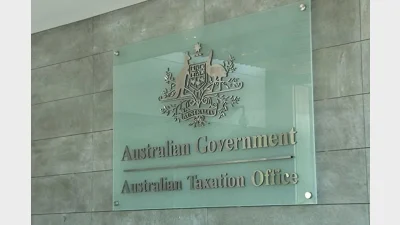(June-2003) The lessons of Pontius Pilate
Appointing a master trust or industry fund to replace a stand-alone fund entrusts employees’ super to a third party. If this trust is misplaced the employees will suffer, and it will rebound on the employer who drove the initial decision.
Outsourcing to a third party does not allow companies and their employers to wash their hands of super. It is dangerous to do so.
Fortunately, in Rice Walker’s experience, companies take great care in selecting the right master trust or industry fund. They want to protect their employees from “sharks”. They focus on the ability of the third party to provide quality investment and insurance options to each member and to educate and inform members so they make the right decisions.
The trustees of master trusts and industry funds must fulfil their responsibility to act in the interest of members. This extends beyond:
n simply delivering contracted services. This can be a convenient excuse for neglect.
n compliance with law. Obviously, full compliance is essential. However, it does not mean the master trust, industry fund, or their trustee has done all that it needs to do.
The master trust trustees, usually through appointed agents and employees of the master trust, must be proactive in supporting their members. They must avoid the sins of both commission and omission. Both can do great damage. Both occur.
Three examples will illustrate.
Case 1: Poorly performing investment manager left in place
The default investment option included a manager selected when the master trust was appointed. That manager performed badly for two years and went through restructure and change. The master trust liaised through a policy committee and did not once mention the manager’s performance.
When we questioned this, the master trust argued that the policy committee had not raised it, so neither had they. The policy committee took another view. It relied on the master trust to raise issues of concern with it and take action. In this (part defined benefit) fund “apathy and neglect” hurt both the company and members.
Case 2: Use of related parties
Many organisations operate public offer arrangements and also provide specific services to the trust and its members. Investment houses, insurance companies, administrators, financial planning groups and consulting firms all do it.
We know they use “related party” services. It is one reason why they establish these funds. But the related party must deliver.
In one example, a master trust operated by a poorly performing investment manager mandated that participants invest assets with the operator. They were not winning new business so they waived the requirement. This was a good move commercially. It also benefited participants. To their credit, they went further and introduced the new arrangements to existing participants. The result was some shift of assets away from the operator to other options within the master trust.
However, only a small portion of assets moved. Investment strategies were only changed for future contributions. Existing account balances (the bulk of assets) only changed if individual members made a positive request to do so. Worse still, the “default” continues to be the operator’s products.
Has the trustee done enough?
Case 3: Automatic rollover into related products
When employees leave service they must invest the benefit, thus making what is often the most important investment decision of their lives. The member should receive independent advice and enough information to understand his or her options and the implications. They should then be helped to implement the decision.
What happens if they do not make a decision?
In some cases the member’s benefit is automatically rolled into a product of the operator. This is not necessarily a bad thing. However, it is often a retail product with significantly higher fees and charges.
The practice raises questions about the advice given to the member, especially when agents of the operator give that advice.
Conclusion
Operators of master trusts need to be conscious of the potential for conflicts of interest. The company must not be a Pontius Pilate. Outsourcing does not allow the company to wash its hands of responsibility for what happens thereafter.
Companies considering outsourcing, and those already in master trusts and industry funds, should consider how they ensure:
n decisions made on behalf of their employees are right ones;
n outsourcing arrangements continue to be competitive; and
n conflicts of interest are properly and appropriately managed.
— Wayne Walker is managing director of Rice Walker Actuaries.
Recommended for you
The responsible investment body is warning that a one-size-fits-all ESG framework mirroring those in the UK and the EU could do more harm than good.
Australian super funds are monitoring the US closely as President Donald Trump increasingly intervenes in corporate policy, moves that are reverberating through global markets and prompting reassessments of portfolio risk.
Industry fund HESTA has filed an appeal against an ATO decision on tax offsets from franking credits, with the Australian Retirement Trust set to file a similar claim soon.
The latest superannuation performance test results have shown improvements, but four in 10 trustee-directed products continue to exhibit “significant investment underperformance”, warns APRA.











